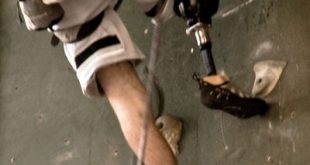
This is the last article in this series, but before I introduce today’s topic, I’ll do shot summary of the previous entries. In the previous 7 articles I’ve talked about security, knowledge, experience, sales speech, connection with the buyer, identifying roadblocks and persistence. In general, these 7 elements deal with things we can do or transmit during the sales process and that we can learn to become a better salesman.
The eighth element I’m introducing today is a little different, as it’s something that can happen during the sales process but have few or none control over it. This element is being prepared for a “no” when doing a sale. Great salesman understand the importance of receiving a “no” during the process of sales and how this is more beneficial than something negative.
Let me star with a question. What will happen if every time we tried to make a sell, we received a “yes” as the answer? First let’s make it clear that this is an imaginary situation, as it is unlikely for something like this to happen. But if it were real, such a situation would be harmful and not help you at all. It’s logical that sellers want to make as much sales as possible, however this situation wouldn’t allow you to grow and learn new things. Let me explain better this aspect.
If you always sell what you’re selling and you never receive a “no”, there wouldn’t be a need to become a better salesman. What you’ve been doing and whatever the effort has been, it’s enough to sell your product. You are not being challenged and you’re not learning anything from this process. So nor receiving the “no”, instead of being positive, is quite negative and harmful. In fact, too many “yes” means you’re not doing something right, for instance, selling your product or service at a low price.
I want you understand that receiving a “no” during the sales process is normal. So you have to be prepared for a “no” at any given point. I know you wanted that sale, but you will learn from that “no” so in the future the answer will be “yes”. But the future “yes” will depend in part to how you react to the “no”. For instance, if you’re quite cool, tell the buyer you hope to do business in the future and that you’ll keep in touch, this will benefit you greatly. I’ve known of salesman that for example send a congratulation message to their clients in their birthdays, even those that didn’t buy anything from them.
Another great thing to do when a sale is not completed is to ask the client what might have been done to make the sale. In this case, you might learn that is was something you did, or didn’t do or something that was out of your control. Anyway, you’ll learn, be prepared and have more information for the next client.
I know there are some sales we really want to pursue and conquer. But it’s more important to understand how to deal with the “no”. Don’t consider this a rejection or something at a personal level. This is normal during the sales process and our mission it to learn and grow from it.
Image taken from Flickr.com
 An Entrepreneur Blog Management, Strategy, Internet, Technology, Social Networks, Organizational Change and more!
An Entrepreneur Blog Management, Strategy, Internet, Technology, Social Networks, Organizational Change and more!



